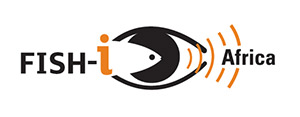Major Tuna Vessel Is Denied Port Landing Because of Evidence of Illegal Fishing
 For the second time in 25 days, a major tuna fishing vessel that is suspected of fishing illegally was denied permission to land its catch in a port in southeastern Africa.
For the second time in 25 days, a major tuna fishing vessel that is suspected of fishing illegally was denied permission to land its catch in a port in southeastern Africa.
On April 19, the South Korean-flagged vessel Premier tried to come to port in Mauritius and offload a hold full of tuna. However, because of information from the African regional partnership to stop illegal fishing, FISH-i: Africa, port officials were aware that the Premier had been denied landing in the Seychelles on March 26 on suspicion of illegal fishing and forging of documents. Mauritian officials were thus ready to present evidence to the vessel captain to justify the denial of landing.
Five countries in eastern Africa—Comoros, Kenya, Mozambique, Seychelles, and the United Republic of Tanzania—make up FISH-i: Africa. This project is supported by The Pew Charitable Trusts and Stop Illegal Fishing, or SIF, a group set up by African countries to end illegal fishing in their waters. FISH-i: Africa promotes cooperation and communication in the region to help those governments identify, monitor, and initiate enforcement actions against suspected illegal fishers.
The Premier, which is owned by the South Korean seafood giant Dongwon Industries Co. Ltd., was first reported to be fishing illegally in Liberian waters in November 2011. Since then, SIF and the FISH-i: Africa network—with the assistance of the Trygg Mat Analytical Unit, a Norwegian foundation that promotes sustainable fisheries—have been monitoring the vessel's movements.
After the Premier was denied access to port in Victoria, Seychelles, the vessel showed movements consistent with fishing in international waters to the northeast of that island nation. From April 7 to 9, the vessel turned off its satellite communications system. Satellite tracking data obtained by Fish-i indicate that on April 13, the vessel was in contact with a Dongwon-owned purse seiner, Xixili, in international waters to the northeast of the Seychelles, suggesting a possible transfer of fish between the vessels. The Premier then traveled to Mauritius, where it arrived April 19 and made the request to offload fish.
Evidence linking the Premier to illegal fishing activities in Africa since 2012 includes the following:
- February 2012—SIF reports on Illegal Fishing in West Africa, naming the Premier as a vessel being monitored for illegal fishing in Liberian waters.
- December 2012—Aided by FISH-i and SIF, Liberia sends an official request to the Mauritian government for assistance with and inspection of the Premier. An inspection takes place, and several documents are found that confirm the suspicions of illegal fishing in Liberian waters.
- January 2013—Several FISH-i Africa countries in the western Indian Ocean deny fishing licenses to the Premier because of the ongoing case in Liberia.
- January 2013—An employee of Dongwon Industries forwards two letters to the government of Kenya, supposedly from Liberian authorities to the flag State, South Korea, implying that the suspicion of illegal, unreported, and unregulated fishing was a misunderstanding.
- January 2013—The letters are confirmed by Liberia's Bureau of National Fisheries to be forged.
- February 2013—As a result of this and other reports, the government of the United Kingdom raises concerns over imports of canned tuna that may contain illegally caught fish from West Africa.
- March 2013—The government of Liberia releases a statement disputing allegations by Dongwon Industries that the company is a “victim of fraud” by Liberian fisheries officials.
- March 26, 2013—Seychelles denies the Premier's request to offload its catch in Port Victoria.
- April 19, 2013—Mauritius denies the Premier's request to offload its catch in Port Louis.
None of these successes against illegal fishing would have been possible without significant and persistent information sharing and cooperation among the FISH-i Africa countries, and among other countries in western and eastern Africa.
The initiative connects partners on a real-time basis to share information and intelligence that enables them to make decisions and take action against suspected illegal operators. Along with direct support from Pew and Stop Illegal Fishing, FISH-i has assistance from the Indian Ocean Tuna Commission and the Indian Ocean Commission's SmartFish Project.
FISH-i Africa faces a challenging road ahead to end illegal fishing in the region. But the early progress is encouraging, both in enforcement of illegal fishing violations and in empowering developing States to defend and manage their valuable natural resources.






